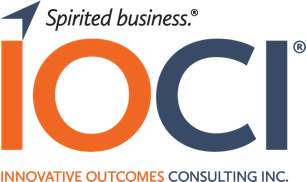
Artificial intelligence uses computer hardware and software to mimic how humans perceive, reason and judge. Computer scientists have been working diligently at artificial intelligence projects for years. At first, many projects were focused on designing computer programs and circuits to copy specific decision rules and processes followed by humans, in hopes that the resulting system would operate like a human. They did–sometimes–but less effectively than many hoped. In recent years, the main focus has been on an approach called machine learning, in which researchers instead try to develop a system that isn’t hardwired with knowledge but instead simulates how brain cells interact with one another and learn from data. The finished system is taught how to make the desired decisions; once it is sufficiently knowledgeable, it can be let loose to make decisions on its own. This process has shown remarkable promise in developing systems that can mimic human judgment.
With AI, the future of business management is ripe for change
Whenever you instruct Siri on your iPhone to place a call for you, or tell Alexa in your home-automation system to play your favorite music, you’re getting a tiny taste of the future of management.
With #AI, the future of #businessmanagement and #leadership is ripe for change, says Marialane Schultz, IOCI CEO Share on XIt’s not that leaders of the future will be spending their time playing music or fiddling with smart apps that program office lighting. The point is that leaders will be–and indeed, already are–using advanced information technology to serve as assistants and coaches in their jobs. Some workforces will shrink, and remaining jobs will change, as computers assume many routine and rote tasks now done by both line workers and supervisors.
“Now more than ever, there is a growing strategic imperative for senior leaders to begin assessing how work will change, what capabilities will be needed and how organizations must prepare to lead an AI-augmented workforce.” – Marialane Schultz, IOCI CEO
While some experts are saying artificial intelligence (AI) is “destroying” traditional business thinking, Barry Libert and Megan Beck, co-founders of AIMatters, suggest that AI offers great opportunities to consider. AI even has the potential to liberate us to focus more on what is meaningful with much more data to make accurate and precise projections and informed-decisions strategically and in real-time on a day-to-day basis. Schultz says a great example where AI is helping is with doctors in the healthcare industry. These AI applications utilized lessen the documentation burden on doctors in a way that frees them up to spend more time with patients. There is an efficiency and cost effective aspect to this as well. Medical practitioners, for example, can continue to use dictation, but transcription can be performed by AI rather than a human.
As we outlined in our research findings and white paper, Leading in the Era of AI, the task of organizational leadership is changing as AI disrupts traditional leadership principles, approaches and organizational mindsets. AI is influencing how workers and managers approach the work and deliver what their clients want.
“AI advances are accelerating and those who prepare are likely to remain relevant and will find a competitive advantage over those who don’t.” – Marialane Schultz, IOCI CEO
It’s time to really examine how AI is poised to change how businesses are run and how we can take advantage of the power of AI and machine learning to make more precise decisions – faster and more effectively.
As our research shows, it’s not a matter of when AI will change your business, but how.
Libert and Beck share mutual findings and insights:
“Research has clearly showed that few organizations have AI first leaders or boards, despite the advantages. If leaders really believe that AI is more important and disruptive than the advent of the internet then they need to experiment now before today’s superstar firms become Death Stars (many would say that Amazon already is). Leaders need to be open to new machine-based technologies and to the instrumentation of many of their tried and true business processes.”
 Libert and Beck suggest the true promise of machine in the C-Suite is improving “how business is run and governance is done.”
Libert and Beck suggest the true promise of machine in the C-Suite is improving “how business is run and governance is done.”
How AI frees up leadership to lead
In their most recent article on Forbes, Algorithms Are Replacing Leadership Strategies, their insight points to the real promise of AI.
Their hope is that AI, machine learning and troves of data ultimately will free us up to do work we enjoy and even how we work “smarter.”
See our latest white paper on AI and the introduction of “judgment work” for more information.
As we have access now to this powerful technology and automation, we are now being given back the opportunity to depend on our higher arts—creativity, motivation, persuasion, and empathy, says Leibert and Beck.
Going with these human-centered strengths, Leibert and Beck advise C-Suite leaders to:
- Get with the program: The time is now for leaders to grasp the basics of AI
- Rent, build or buy your own: You don’t need to be an expert in machine learning to integrate and deploy new algorithms within your organization. There are many ways to bring this capacity in-house.
- Invest in your future: Find ways to become proficient and expose yourself to how you can bring machine learning into your organization and how you can best lead these innovative initiatives effectively.
The bottom line, says Leibert and Beck, is “Learn how to make use of algorithms to build on your human skills or risk being replaced entirely.”
Straight-talk all leaders need to hear right now on AI
The task of organizational leadership will change as AI disrupts traditional leadership principles, approaches and organizational mindsets on how workers and managers approach the work and deliver what their clients want. “Organizational leaders must anticipate now what AI will mean, both in opportunities and competitive threats,” says Marialane. “They must prepare their people and create an organizational mindset that is focused on how the work will change, how to build the right talent, how to adjust and align capabilities in a way that sustains their relevance as leaders, employees and organizations.”
It’s time to thrive in an AI-augmented business world
Leaders must develop their abilities to effectively leverage AI tools to drive their business effectively. Leaders and their staff must understand the technology and how to work with it so they can identify ways in which the technology can help them add to the company’s performance–and at the same time, identify gaps in the AI’s contribution so that organizationally everyone involved can help fill the gaps with their own unique human-centered capabilities.


